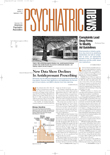“Cognitive behavioral therapy (CBT) can be an important part of any insomnia treatment regimen,” asserted Carl Hunt, M.D., director of the National Center on Sleep Disorders Research.
“Physicians don't have to choose between CBT and medication,” he added. “They don't debate whether to give patients with hypertension an antihypertensive drug or urge them to watch their diet. They do both.”
Comparative trials show CBT works as well as prescription hypnotics for insomnia, a National Institutes of Health review panel noted (see article above). In a study at Boston's Beth Israel Deaconess Medical Center, for example, Gregg Jacobs, Ph.D., and colleagues compared CBT alone, zolpidem alone, a CBT/zolpidem combo, and a placebo in 63 adults aged 25 to 64 for eight weeks.
Participants kept sleep diaries and had three nights of home-based Nightcap sleepmonitor recordings before and after treatment. Therapists taught CBT participants how to identify and curb thoughts that elevate arousal and interfere with sleep. They urged poor sleepers to reserve the bedroom for sleep and sex, go to bed only when drowsy, arise at the same time each day, and use other behavioral tactics known to benefit sleep.
At one-year follow-up, CBT users maintained therapeutic gains. Combination treatment offered no advantage over CBT alone, Jacobs' group reported in the September 2004 Archives of Internal Medicine. The beneficial effects of CBT may continue long after formal treatment stops, the panel noted, while those of sleep medications seldom do. Relatively few clinicians have expertise in using CBT for insomnia, however. There are only about 50 certified behavioral sleep medicine specialists in the United States and perhaps only 200 worldwide.
CBT specialists are exploring group treatment, training of nurse practitioners or physician assistants as therapists, phone therapy, bibliotherapy, Web-based self-help programs, and even—in Holland—an eight-show television series to teach behavioral interventions to the general public. In a study at the University of Glasgow, Scotland, primary care nurses trained in CBT conducted six therapy sessions with 139 people with insomnia, in groups of four to six people at a time. By the last session, participants fell asleep faster and awakened less often at night, Colin Espie, Ph.D., and colleagues reported in Behaviour Research and Therapy in January 2001. One year later, participants maintained their improvement and had increased their total sleep time. Moreover, 84 percent of those who initially had used hypnotics remained drug free.▪
